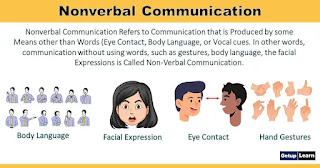In a world where technology has made it easier than ever to connect with others, it's ironic that many people still struggle with building meaningful relationships. The truth is, building relationships is not just about being present physically, but also about effective communication. Communication is the foundation upon which all relationships are built, and without it, relationships can crumble.
So how can we ensure that our communication is effective and fosters meaningful connections? Let's explore some key elements that can help us become better communicators and build stronger relationships.1. Active Listening:
One of the most important aspects of effective communication is active listening. This means being fully present in the conversation, paying attention to both verbal and non-verbal cues, and truly understanding what the other person is saying. Active listening involves giving our undivided attention, asking clarifying questions, and summarizing what we have understood. By practicing active listening, we show respect and empathy, making the other person feel valued and heard.
2. Empathy and Understanding:
Effective communication goes beyond just hearing the words; it involves understanding the emotions and perspectives behind them. Developing empathy allows us to put ourselves in the other person's shoes and see things from their point of view. By showing empathy and understanding, we create a safe space for open and honest communication, which is essential for building trust and meaningful relationships.
3. Non-Verbal Communication:
It's not just what we say, but also how we say it. Non-verbal communication, such as facial expressions, body language, and tone of voice, can speak volumes. Being aware of our own non-verbal cues and paying attention to others' can help us better understand the underlying emotions and intentions behind the words. By aligning our verbal and non-verbal communication, we can ensure that our message is clear and congruent.
4. Clear and Concise Expression:
Effective communication requires clarity and conciseness. It's important to articulate our thoughts and feelings in a way that is easy to understand and avoids misunderstandings. Being mindful of our choice of words, using simple language, and providing specific examples can help convey our message effectively. Additionally, being aware of cultural and contextual differences can ensure that our communication is inclusive and respectful.
5. Conflict Resolution:
Conflict is inevitable in any relationship, but effective communication is key to resolving conflicts and maintaining healthy relationships. It's important to approach conflicts with an open mind, actively listen to the other person's perspective, and express our own feelings and needs assertively. By finding common ground, seeking compromise, and focusing on solutions rather than blame, we can navigate conflicts in a constructive manner and strengthen our relationships.
6. Feedback and Validation:
Lastly, effective communication involves giving and receiving feedback in a constructive and validating manner. Providing feedback allows us to express our observations and concerns, while validation ensures that the other person feels heard and acknowledged. By offering specific and actionable feedback, we can help each other grow and improve. Likewise, receiving feedback with an open mind and gratitude shows our willingness to learn and adapt.
In conclusion:
Effective communication is the key to building meaningful relationships. By practicing active listening, empathy, and understanding, paying attention to non-verbal cues, expressing ourselves clearly and concisely, resolving conflicts constructively, and providing feedback and validation, we can foster connections that are built on trust, respect, and understanding. Remember, building meaningful relationships takes effort, but with effective communication, the possibilities are endless.










.jpg)
.jpg)


0 Comments